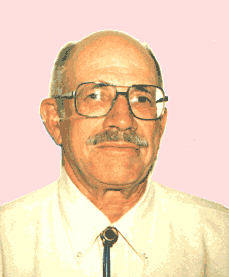|
by Mel Griffith
It's amazing how much progress this country and Bradley County in particular have made in one lifetime. In our constant push to make things even better, we sometimes forget to stop and think about how far we have come within memory of people my age. If young folks of today could suddenly be dropped into Bradley County in the 1940s' they would take it for granted that they were in a third-world country, and by today's standards, they would be right. We are presently engaged in upgrading the electrical systems of our schools to support modern technology, but when I started school there was no electricity at school or anywhere else in the neighborhood. There were also no telephones or indoor plumbing. The utility system at Wooten School when I started in 1942 consisted of a well and a hand pump in the back yard, coal fired heaters in the corners of the classrooms and two outhouses. We did have a "cafeteria" which consisted of a long table in the hallway of the building. Imagine what the fire marshal would say about that now. The level of culinary skills among the kitchen staff caused many of us to bring our lunch from home. For those who chose to eat, the cost was ten cents per day. The school consisted of three classrooms, one of them occupied by 1st and 2nd grades. The other two rooms had three grades each. Three times each week (I think) we all crowded into one room for chapel, which consisted of some singing and long prayer by the principal. Each service closed with the singing of a hymn. Since we only knew three hymns and sang them badly, I acquired a distinct distaste for those particular hymns which lasted about thirty years. On the days we did not have chapel, the school day began with a prayer for which we were in violation of the constitution, the Supreme Court not having yet written that part of the constitution. One morning I was not paying attention and did not notice that it was prayer time. As soon as it was over a chronic busybody tattled on me for not having closed my eyes and bowed my head. The teacher was just starting a stern lecture when someone pointed out that if the tattletale had had his eyes closed, he wouldn't have known what I was doing. This seemed to be a thought that had not occurred to the teacher, for after some reflection, she agreed and changed the subject.
Back then all the country roads were dirt with a little gravel and getting stuck on back roads in the winter was a common experience. Many families had no car and hardly any families had more than one. Farming was done mostly with horses and a huge amount of backbreaking hand labor. Between drawing water, cutting wood, keeping up fires, and cooking from scratch on wood-burning cook stoves, it took a tremendous amount of time and energy just to keep things going, leaving little time for making progress. Yet inch by inch, things were improved, so that the place no longer seems to be part of the same world. Things moved so slowly, it was hard to tell they were even moving, but steady effort can make a big difference over time. By the standards of yesteryear, most of us live a life of luxury. We are not as busy as we like to think we are, for we don't spend much time each day doing the chores that took most of the day a few generations ago. Much of the rest of the world has progressed with us. Most of the progress has been where there is democracy and free enterprise. It is sad to realize there are substantial parts of the world where folks are doing no better than their grandparents were in some cases, perhaps worse. Some misfortunes may be due to lack of recourses, but most failures of countries to succeed are due to poor government. That should remind us to keep a close eye on our own government.
|
|
